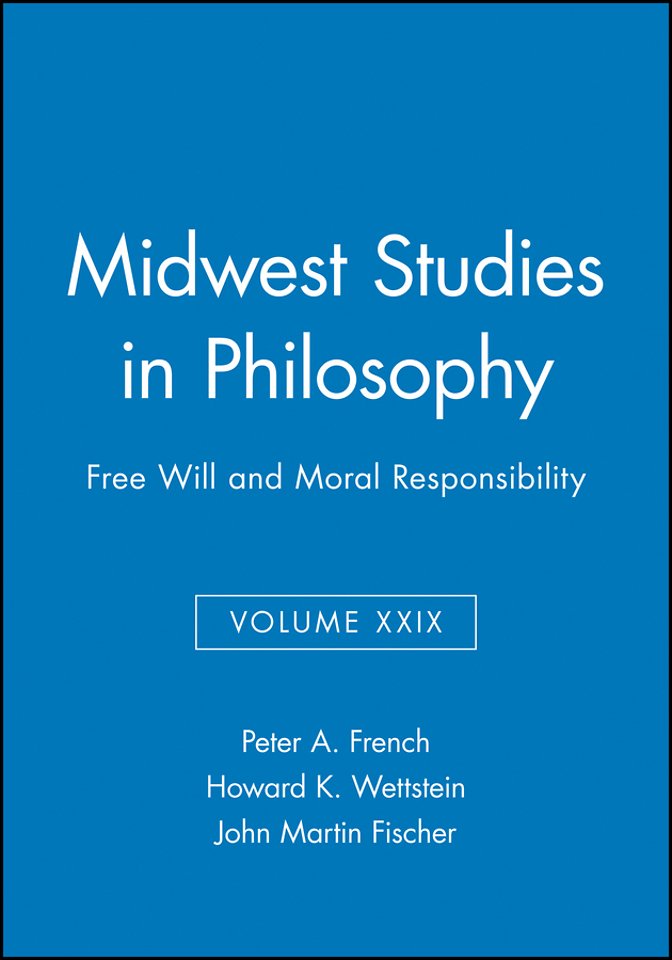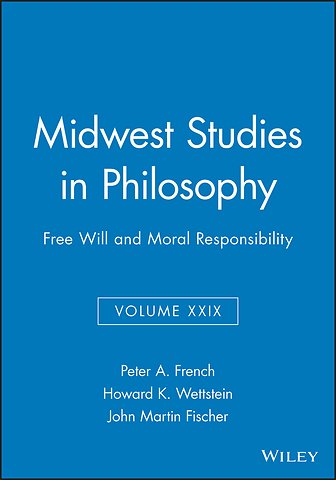Free Will and Moral Responsibility: Midwest Studie s in Philosophy, Volume XXIX
Free Will and Moral Responsibility
Samenvatting
The essays in this volume explore various issues pertaining to human agency, such as the relationship between free will and causal determinism, and the nature and conditions of moral responsibility.
Builds on and extends some of the very best recent work in the field.
Features lively and vigorous debate.
Forges connections between abstract philosophical theorizing and applied work in neuroscience and even criminal law.
Specificaties
Inhoudsopgave
<p>2. On an Argument for the Impossibility of Moral Responsibility: Randolph Clark (University of Georgia).</p>
<p>3. Deliberation and Metaphysical Freedom: E. J. Coffman (University of Notre Dame) and Ted A. Warfield (University of Notre Dame).</p>
<p>4. Alienation, Autonomy, and the Self: Laura Waddell Ekstrom (College of William and Mary).</p>
<p>5. Neurobiology, Neuroimaging, and Free Will: Walter Glannon (University of Calgary).</p>
<p>6. Frankfurt–Style Counterexamples and Begging the Question: Steward Goetz (Ursinus College).</p>
<p>7. Freedom, Obligation, and Responsibility: Prospects for a Unifying Theory: Ishtiyaque Haji (University of Calgary).</p>
<p>8. Moral Responsibility and Buffered Alternatives: David P. Hunt (Whittier College).</p>
<p>9. Decisions, Intentions, and Free Will: Alfred R. Mele (Florida State University).</p>
<p>10. Where Frankfurt and Strawson Meet: Michael McKenna (Ithaca College).</p>
<p>11. Freedom, Responsibility and the Challenge of Situationism: Dana K. Nelkin (University of California, San Diego).</p>
<p>12. Freedom with a Human Face: Timothy O′Connor (Indiana University).</p>
<p>13. Defending Hard Incompatibilism: Derk Pereboom (University of Vermont).</p>
<p>14. Free Will and Respect for Persons: Saul Smilansky (University of Haifa).</p>
<p>15. PAPistry: Another Defense: Daniel Speak (Azusa Pacific University).</p>
<p>16. The Trouble with Tracing: Manuel Vargas (University of San Francisco).</p>
<p>17. Blameworthiness, Non–robust Alternatives, and the Principle of Alternative Expectations: David Widerker (Bar Ilan University).</p>
<p>18. More on "Ought" Implies "Can" and the Principle of Alternate Possibilities: Gideon Yaffe (University of Southern California).</p>

